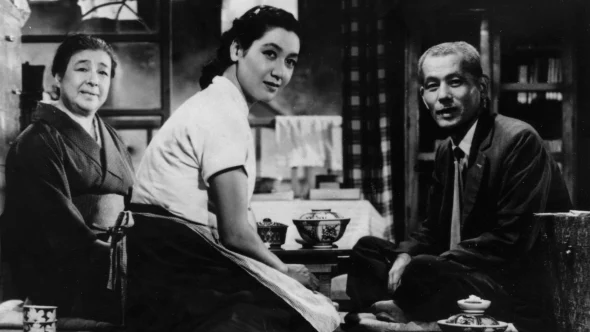
Lee Isaac Chung is the director behind the new film Minari, inspired by his upbringing on a farm in Arkansas. Below, he shares five films that inspired the making of the movie.
I feel like everything that you deal with in life can be explained in a garden. That’s why it’s such a rich metaphor in many religions. You just find everything within land, working the land. There are snakes, there are miracles, there is community. There’s something so elemental about it, and I feel like I carry those sentiments of what it was like to do that in my childhood.

Directed by: Roberto Rossellini | Written by: Vitaliano Brancati and Roberto Rossellini
There's a lot that I feel like I borrowed from this Roberto Rossellini film. You really see the dissolution of a marriage, and then there’s this miraculous coming together at the end. And that’s only in the context of possible death. I was always a fan of that film, and as I was writing Minari, I went back and revisited it.

Directed by: William Wyler | Written by: James R. Webb, Sy Bartlett and Robert Wilder
It's an old William Wyler film from '58. When we signed up for Columbia's “Buy 10 movies for one penny" sort of thing back when we were kids, my dad was like, "You guys can join this if you order The Big Country." He wanted Big Country and Giant, so those were actually two films that I thought about with this movie. And he told us that these films inspired him to move to America.
In The Big Country, you see different people warring with each other over land, and the land is something that, in itself, can bring peace to the people. I think that happened a lot for my parents’ generation in Korea. There was a lot of warring over land, and the war between North and South Korea. My dad's family lost a lot of land because of that conflict. So I think the idea of land really resonated with him a lot.

Directed by: George Stevens | Written by: Fred Guiol and Ivan Moffat
Giant is a George Stevens movie, and I loved James Dean's character in that. That's something I studied a lot as I was writing for [the character of] Jacob. And, lo and behold, when I was talking to Steven [Yeun, who plays Jacob] about his preparation, he brought up James Dean to me. And I told him, "That’s it. That's exactly the model." It's because he doesn’t really fit in anywhere. He’' his own man, and there's a real, deep frustration with the boxes in which he's always being put into — and, apart from all those things, he's trying to figure out who he is. We felt like that's what Jacob is doing. He's moving away from California, he already moved away from Korea, and he just wants to strike out and figure out who he is. So we thought there was the spirit of James Dean in Jacob.

I just love all of Yasujirō Ozu’s films: the way that family is the protagonist in his movies and it’s not about one individual and one hero. It’s really about the family and the journey that they take together, and that’s something I really tried to study. In some of the scenes, I tried to do a little bit of an homage to him with the way that it’s framed and presented. Maybe the clearest is the punishment scene where you see all the family together. Also, Ozu is not afraid to tell fart jokes and stuff like that in his movies, even though we consider them to be very high-minded now. I’ve got pee jokes and penis jokes … so I feel like Ozu gave me permission to be crass and just do things that I think are funny.

Where to Watch: The Criterion Channel
Directed by: Roberto Rossellini | Written by: Sergio Amidei, Gian Paolo Callegari, Art Cohn and Renzo Cesana
The other Rossellini film I would mention is Stromboli. That one starts off with a married couple, in which the wife is very upset with where she’s brought: to this island in the middle of nowhere. When I was working on my own story in the script, it reminded me of Stromboli, that opening. So I went back and studied that. The film also shows some spiritual salvation working out on the land, within the life of a couple.





